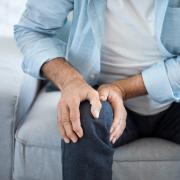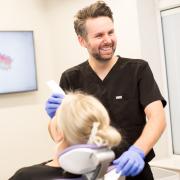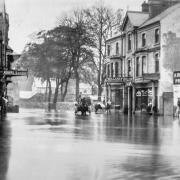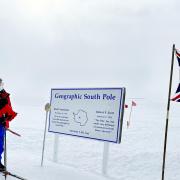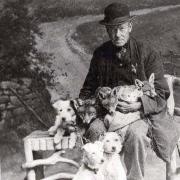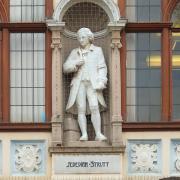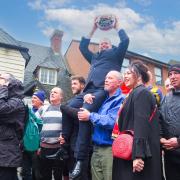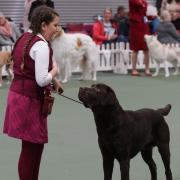In the month of the NHS’s 75th anniversary, Steve Roberts speaks to an unsung hero who has been providing support to Derbyshire’s hospitals and patients for almost half a century Churchill won the war but lost the peace; defeated in the General Election of July 1945 as thoughts turned to post-war reconstruction under a Labour Government headed by Clement Attlee.
Aneurin (Nye) Bevan was appointed Minister of Health, and, in that capacity, introduced the revolutionary NHS in 1948.
Given how the NHS is still revered, it’s easy to understand why Nye still has something of a cult-following.
‘Our hospital organisation has grown up with no plan, with no system; it is unevenly distributed over the country… I would rather be kept alive in the efficient if cold altruism of a large hospital than expire in a gush of warm sympathy in a small one’ he told the House of Commons on April 30 1946.
On July 5 1948, the Government duly took over responsibility for all medical services, with free diagnoses and treatment.

The principle (which still holds) of healthcare, free at the point of delivery, and based on need, not wealth, was established.
It was the first universal healthcare system to be available to all, free at the point of delivery, and remains a source of pride for the vast majority of British people.
Our granddaughter graduated as a nurse last year having endured the wearing of PPE during her placements, the Covid-19 crisis having hit whilst she was mid-course.
There has been pressure on the NHS for as long as most of us can remember, particularly through winter months, but the pandemic took these pressures to a new and critical level.
The problem the NHS now faces is how to deal with a massive backlog of millions of cases, augmented by a growing and ageing population. The NHS will do its best, it always does, and will treat 1.3 million people a day in England alone.
The organisation has had to adapt constantly as the needs of our people, and the nature of illness, evolve.
Large scale vaccination programmes were introduced, the most recent being only too recent, and the NHS was responsible for the world’s first liver, heart and lung transplants, as well as developing pioneering new treatments such as bionic eyes and using robotic systems to help cure prostate cancer sufferers, and drones to deliver chemotherapy drugs.
The pandemic saw the NHS researching at an unprecedented scale, enabling the world’s first effective treatment, and then putting jabs into arms in a whirlwind rollout that was both miraculous and desperately needed; in the single month of January 2021, 100,000 people were admitted to hospital with the virus.
Every single member of the NHS family matters but in a year of 75th anniversaries we should perhaps pay a special tribute to our ethnic minority colleagues who make up 42% of medical staff working within the NHS.
When we have to rely on the NHS it is to the clinical staff we look for our salvation. However, there is a legion of people working quietly behind the scenes who we might not be so aware of but whose contribution can be just as vital.

Clive Moore is a case in point. Come this August he will have worked for the organisation for 48 years, having started as a joiner in 1975.
‘I worked for over 25 years as a joiner and am now an estate technician helping to look after the day-to-day maintenance of the NHS facilities across the whole of Derbyshire, although I’m based at Kingsway Hospital, Derby,’ says Clive.
‘Over the years many of those properties have changed. Although ‘Estates’ is not medical, our work touches virtually everybody, all levels right across the board, and we deal with the staff on the wards as well as the patients.
‘We liaise with doctors, nurses, physios and occupational therapists. Kingsway Hospital provides mental health services and we work alongside people in an environment that is their home.
‘Maintaining a clean, safe environment is important; it’s about patient wellbeing. It can be something as straightforward as repairing a patient’s locker door. A lot of the patients are elderly too, so a friendly face and a bit of normality is vital. It’s important to just say hello, have a chat and maybe joke about the fortunes of Derby County, which is easy enough!
‘The Trust has a lot to do with mental health, although in many ways Kingsway is just like a conventional hospital. Those mental health issues vary by degrees, encompassing a number of different illnesses and lengths of time. The work done by the clinical staff is amazing and we’re proud to support them.’ I’ve come to expect the unexpected over the years, so I like to think I was fairly phlegmatic when Clive told me he was also a magician - although I suspect I wasn’t able to fully hide my surprise.
‘Yes, I used to do shows for patients on the wards,’ Clive reveals.
‘I’m chairman of the Northern Magic Circle and do some writing in the International Brotherhood of Magicians’ publication The Keyring. I’ve written in there regularly for six years, reflecting on the funny side of magic and once won a ‘Silver Nib’ for my writing.
‘I do ‘stand-up’ magic, children’s magic, and I’m also a registered clown, as is my partner Jean. We do a lot of charity work, supporting the local children’s hospice and other charities. We’re also both members of the League of Friends at the hospital, which ensures, for example, that every inpatient, approximately 300 inpatient beds, has a present at Christmas.’ Clive has a refreshing attitude to life and work, which has been partly shaped by what he refers to as a ‘dicky heart’ as well as a Parkinson’s diagnosis.

‘I have Parkinson’s but Parkinson’s hasn’t got me. I do little if any physical work now because of it but I’m still busy dealing with contractors which could be for floorings, blinds, windows, overseeing inductions, handling requisitions, arranging meetings on site for quotations, undertaking inspection work, doing all the meter readings (gas, electric and water) for the whole county and so forth.
‘We also have to respond to emergencies, such as broken windows. Anything could happen in any property over the county at any time, so we have a 24-hour process with callout every day of the year.
‘Fire prevention, health and safety and security are all part of our remit. We even have a gritting team for when it gets frozen.
The Estates team can get undersold as just a gang of people in overalls, but we take great pride in what we do. We’ve very dedicated and most of us have been here for many years, which says something.’ I wondered, after such a long and fulfilling career, if Clive had any thoughts on retirement.
‘I’ve just turned 68 but that’s just a number. I believe you can be old at 24 or young at 84; it’s all about attitude,’ he concludes.
‘With Parkinson’s it’s better for me to keep busy and when you have a job that’s a vocation it’s that bit easier.
‘We can be just as dedicated in ‘Estates’ as the surgeons as the final product we’re all striving for is the wellbeing of patients.’




